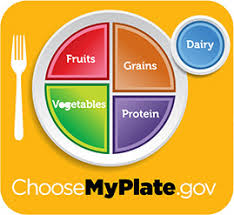Resources

-
Society suggests alcohol and drug use is a part of the college experience. The culture encourages college students to use these substances everyday. Parties, music, and TV in general persuade students to use alcohol or drugs. While the message suggests a light and fun time, you rarely hear how alcohol and drugs can negatively impact your goals and success.
 Drinking Tips to Lower Risk:
Drinking Tips to Lower Risk:- What is the definition of a drink? One drink is defined as 12 oz bottle of beer, 5 oz glass of wine, or 1.5 oz of liquor.
- Have a plan before you go out.
- Alternate alcohol intake with water intake.
- Make sure to eat and do not drink on an empty stomach.
- Always have a designated driver.
- Make similar drinks that are non-alcoholic (Mocktails).
- Remember not drinking is the safest option!
- Know the signs of alcohol poisoning.
- Do not be afraid to say no!
Drugs on College Campuses
Drug use is not as common as alcohol use on college campus, however, it is still a concern. Most drug use occurs while students are engaged in other risky behaviors, like drinking alcohol. Know the signs of an overdose and do not give into peer pressure.
Interested in learning more?
- Email StudentWellness@missouristate.edu a presentation facilitated by a Student Wellness Representative.
- Come by Magers Health and Wellness Center and grab some resources.
Resources
-
What is Domestic Violence?
A pattern of behaviors used by one partner to maintain power and control over another partner in intimate relationships. Domestic violence does not discriminate. Anyone of any race, age, sexual orientation, religion, or gender can be a victim or perpetrator of domestic violence. It affects people of all socioeconomic backgrounds and education levels.
Domestic violence includes behaviors that physically harm, arouse fear, prevent a partner from doing what they wish or force them to behave in ways they do not want. It includes the use of physical and sexual violence, threats and intimidation, emotional abuse, and economic deprivation. Many of these different forms of domestic violence/abuse can be occurring at any one time within the same intimate relationship.
Warning Signs
Physical Abuse
- Pulling your hair, punching, slapping, kicking, biting or choking you
- Forbidding you from eating or sleeping
- Hurting you with weapons
- Preventing you from calling the police or seeking medical attention
- Abandoning you in unfamiliar places
- Driving recklessly or dangerously when you are in the car with them
- Forcing you to use drugs or alcohol
Emotional Abuse
- Calling you names, insulting you or continually criticizing you
- Refusing to trust you and acting jealous or possessive
- Trying to isolate you from family or friends
- Monitoring where you go, who you call and who you spend time with
- Demanding to know where you are e very minute
- Trapping you in your home or preventing you from leaving
- Using weapons to threaten to hurt you
- Punishing you by withholding affection
- Damaging your property when they’re angry
- Humiliating you in any way
- Blaming you for the abuse
- Accusing you of cheating and being often jealous of your outside relationships
- Serially cheating on you and then blaming you for his or her behavior
- Cheating on you intentionally to hurt you and then threatening to cheat again
- Cheating to prove that they are more desired than you are
- Attempting to control your appearance: what you wear, how much/little makeup you wear
- Telling you that you will never find anyone better, or that you are lucky to be with a person like them
Sexual Abuse & Coercion
- Forcing you to dress in a sexual way
- Insulting you in sexual ways or calls you sexual names
- Forcing or manipulating you into having sex or performing sexual acts
- Holding you down during sex
- Demanding sex when you’re sick, tired or after hurting you
- Hurting you with weapons or objects during sex
- Involving other people in sexual activities with you against your will
- Ignoring your feelings regarding sex
- Purposefully trying to pass on a sexually transmitted disease to you
- Making you feel like you owe them
- Giving you drugs and alcohol to “loosen up” your inhibitions
- Reacting negatively with sadness, anger or resentment if you say no or don’t immediately agree to something
- Continuing to pressure you after you say no
- Making you feel threatened or afraid of what might happen if you say no
Reproductive Coercion
- Refusing to use a condom or other type of birth control
- Breaking or removing a condom during intercourse
- Sabotaging birth control methods
Digital Abuse
- Tells you who you can or can’t be friends with on Facebook and other sites
- Sends you negative, insulting or even threatening emails, Facebook messages, tweets, DMs or other online messages
- Sends you unwanted, explicit pictures and demands you send some in return
- Steals or insists on being given your passwords
- Constantly texts you and makes you feel like you can’t be separated from your phone for fear that you will be punished
- Looks through your phone frequently, checks up on your pictures, texts and outgoing calls
Healthy Relationships
- You openly talk about problems and listen to one another. You respect each other’s opinions
- You value each other as you are
- You believe what your partner has to say, you do not feel the need to prove each other’s trustworthiness
- You are honest with each other but can still keep some things private
- You make decisions together and hold each other to the same standard
- You enjoy spending time apart, alone, or with others. You respect each other’s need for time apart
- You talk opening about sexual and reproductive choices together, all partner willingly consent to sexual activity and can safely discuss what you are and are not comfortable with
- You and your partner have equal say with regards to finances. All partners have access to the resources they need
The Stats
43% of dating college women report experiencing violent and abusive dating behaviors including physical, sexual, tech, verbal or controlling abuse
58% of college students say they don’t know what to do to help someone who is a victim of dating abuse
Nearly 1 in 5 women and 1 in 71 men have been raped in their lifetime by any perpetrator
On average, 24 people per minute are victims of rape, physical violence or stalking by an intimate partner in the United States. More than 12 million women and men over the course of a year
What can you do at Missouri State?
Engage: Multi Level Violence Prevention Strategy

Contact Title IX
The Title IX Department oversees all issues having to do with sexualized violence, sexual assault, rape, sexual misconduct, dating and domestic violence, sexual harassment, sex discrimination, stalking, and pregnancy rights. For more information see the University's Title IX Policy.
Resources
Interested in learning more?
- Email StudentWellness@missouristate.edu a presentation facilitated by a Student Wellness Representative.
- Come by Magers Health and Wellness Center and grab some resources.
-
Healthy Eating
Eating healthy while in college can be difficult and often times is low on the priority list for students. There are many tools and tricks out there can make eating healthy easier and maybe even more fun!
Tips:
- Half your plates should be fruit and veggies.

- Meal prep to avoid going out or eating fast food.
- Portion out your food into smaller containers or bags.
- Use smaller plates to avoid overeating.
- Eat breakfast! Yes, it is still the most important meal of the day.
- Drink lots of water and avoid sugary drinks like Gatorade, juice, and soda.
- When grocery shopping, stick to the list and avoid the aisles.
My Fitness Pal
Did you know Missouri State Dining Halls meals can be found on the Fitness Pal App? You can track what you eat and find the nutrition facts using the FP webpage or app!
Resources
Tips for Eating in the Dining Halls
Interested in learning more?
- Email StudentWellness@missouristate.edu a presentation facilitated by a Student Wellness Representative.
- Come by Magers Health and Wellness Center and grab some resources.
- Half your plates should be fruit and veggies.
-
Physical Activity can be any motion that gets your body moving and your heart beating a little faster. Being active is important to living a healthy lifestyle and can help maintain/lose weight, help you sleep at night, and can even ward off serious long-term health problems like: cardiovascular disease, type 2 diabetes, and more!

Recommendations
The American College of Sports Medicine (ACSM) recommends adults get at least 150 minutes of moderate-intensity exercise per week or 75 minutes of vigorous exercise.
Moderate Vigorous 2.5 hours EACH week 1.5 hours EACH week - Walk to class
- Bike to class
- Yoga
- Walk a Trail
- Jog/Run
- Hiking up trails
- Swim Laps
On Campus
The Foster Recreation Center offers different fitness classes for students to help them achieve their desired fitness goals. See the full list of services.
Resources
How much physical activity do adults need?
The Importance of Exercise for College Students
Interested in learning more?
- Email StudentWellness@missouristate.edu a presentation facilitated by a Student Wellness Representative.
- Come by Magers Health and Wellness Center and grab some resources.
-
What is Sexual Health?
The World Health Organization defines sexual health as a state of physical, emotional, mental and social well-being in relation to sexuality; it is not merely the absence of disease, dysfunction or infirmity. Sexual health requires a positive and respectful approach to sexuality and sexual relationships, as well as the possibility of having pleasurable and safe sexual experiences, free of coercion, discrimination and violence.
- Understanding that sexuality is a natural part of life.
- Recognizing and respecting the sexual rights we all share.
- Being able to experience sexual pleasure, satisfaction, and intimacy when desired.
- Making an effort to prevent STIs and unwanted pregnancies and seeking treatment when needed.
- Being able to communicate with health care provider about sexual health.
Consent
Consent is an agreement between participants to engage in sexual activity. There are many ways to give consent. Verbal consent to different sexual activities is the best way you and your partner can respect each other's boundaries.
Positive consent can look like:
- Communicating when you change the type or degree of sexual activity with phrases like "is this okay?"
- Explicitly agreeing to certain activities, either by saying "yes" or another affirmative statement like, "I am open to trying."
- Using physical cues to let the other person know you are comfortable taking things to the next level.
Magers Health and Wellness Center Offers:

- Free condoms for Missouri State students (found in the pharmacy).
- Women's Clinic can provide genital care information and well woman checks which can include:
- Contraceptive Prescriptions like:
- Birth Control Pills, IUDs, NuvaRing, Birth Control Patch, DEPO shot
- Contraceptive Prescriptions like:
- Sexually Transmitted Infection Testing (with an order from a doctor).
Resources
Different Types of Contraceptives
Interested in learning more?
- Email StudentWellness@missouristate.edu a presentation facilitated by a Student Wellness Representative.
- Come by Magers Health and Wellness Center and grab some resources.
On Campus Resources Include:
- Campus Recreation
- Center City Counseling Clinic
- Counseling Center
- Disability Resource Center
- Learning Diagnostic Clinic
- Magers Health and Wellness Center
- Physical Therapy Clinic
- Speech-Language-Hearing Clinic
For more information please contact StudentWellness@MissouriState.edu